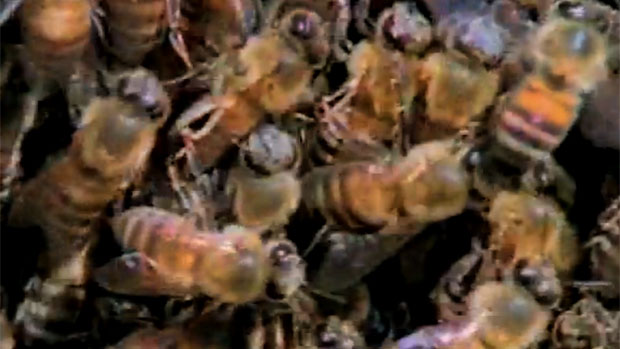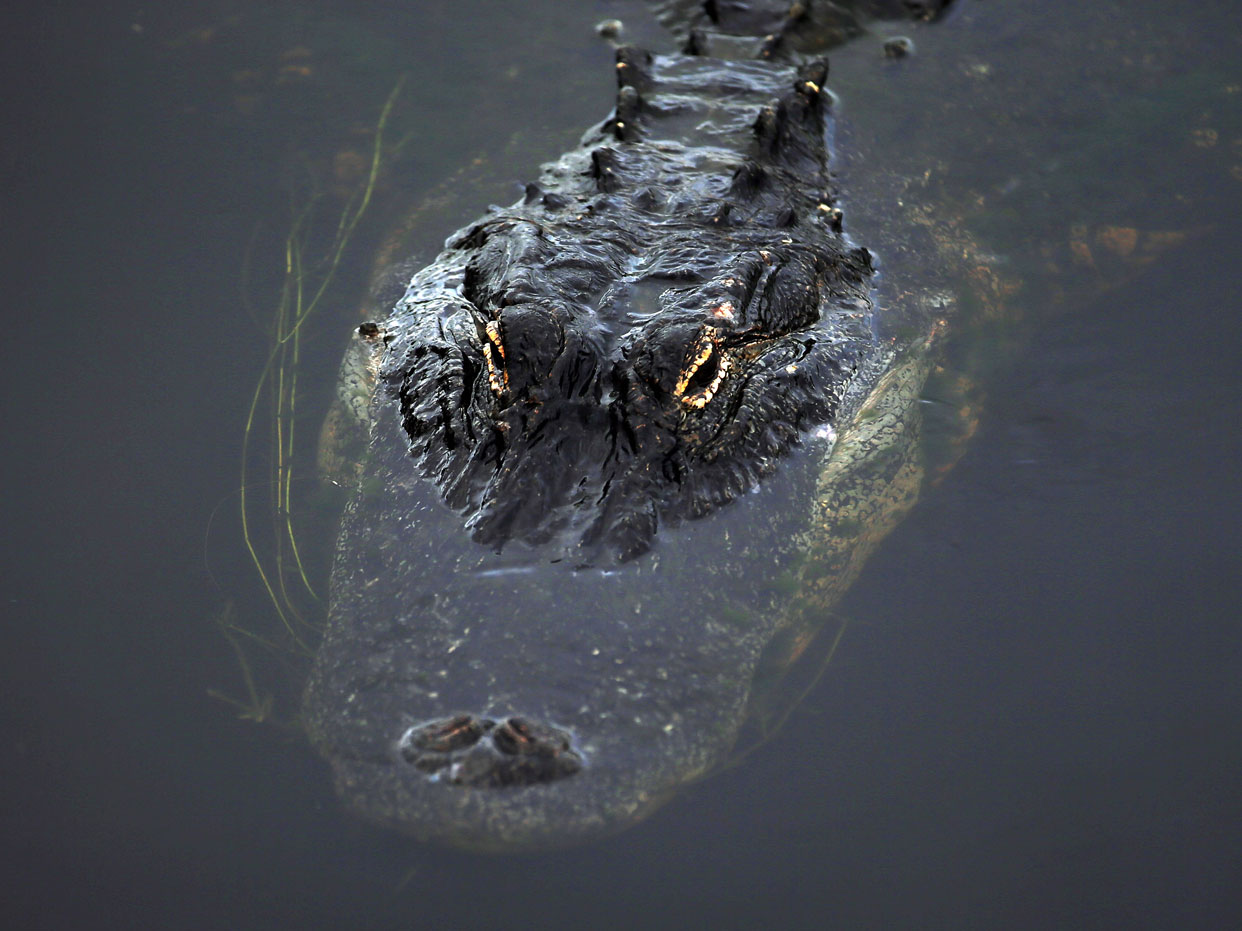Farmer stung to death by giant swarm of 40,000 'killer bees'
Every inch of Larry Goodwin's body stung by highly aggressive insects who also attacked rescuers

A free daily email with the biggest news stories of the day – and the best features from TheWeek.com
You are now subscribed
Your newsletter sign-up was successful
THE family of a Texas farmer, Larry Goodwin, says that "every inch" of his body was stung by a massive swarm of 'killer bees' that caused his death at the weekend.
A woman who tried to rescue 62-year-old Goodwin is in a serious condition in hospital after the swarm of an estimated 40,000 Africanised honeybees began to attack her and her daughter, the Waco Herald-Tribune reports.
Goodwin was driving his tractor on his property near the Texas city of Moody on Saturday when he struck an old chicken coop in which the bees had built a hive. The insects immediately began to attack him, forcing him to run to a nearby outbuilding and try to ward them off using a garden hose.
The Week
Escape your echo chamber. Get the facts behind the news, plus analysis from multiple perspectives.

Sign up for The Week's Free Newsletters
From our morning news briefing to a weekly Good News Newsletter, get the best of The Week delivered directly to your inbox.
From our morning news briefing to a weekly Good News Newsletter, get the best of The Week delivered directly to your inbox.
But the farmer was quickly overwhelmed by the number of bees and their legendary aggression. Experts believe as many as 40,000 were guarding 22 honeycombs in the giant hive. Goodwin was pronounced dead at the scene and his would-be rescuers – a woman and her daughter - were taken to hospital after being stung about 100 times. The older woman is in a serious condition, authorities say.
Africanised bees were already known as "killer bees" before they arrived in the US from Central America about 15 years ago. The "highly aggressive" hybrid of the Western and African honeybees has a reputation for swarming its prey and attacking relentlessly in large numbers.
Allen Miller, a bee-removal specialist who cleared the giant hive after Goodwin was killed, says he is being called on to destroy a growing number of Africanised bee-hives in Texas. "You can't believe how bad they are. They make me want to get out of this business," Miller told the Tribune-Herald. "They can get up under your clothes where no other insect can go."
A free daily email with the biggest news stories of the day – and the best features from TheWeek.com
-
 Switzerland could vote to cap its population
Switzerland could vote to cap its populationUnder the Radar Swiss People’s Party proposes referendum on radical anti-immigration measure to limit residents to 10 million
-
 Political cartoons for February 15
Political cartoons for February 15Cartoons Sunday's political cartoons include political ventriloquism, Europe in the middle, and more
-
 The broken water companies failing England and Wales
The broken water companies failing England and WalesExplainer With rising bills, deteriorating river health and a lack of investment, regulators face an uphill battle to stabilise the industry
-
 'Circular saw blades' divide controversial Rio Grande buoys installed by Texas governor
'Circular saw blades' divide controversial Rio Grande buoys installed by Texas governorSpeed Read
-
 AI puts fortune tellers out of business
AI puts fortune tellers out of businessfeature And other stories from the stranger side of life
-
 Texas found dead body stuck in border buoys it placed in Rio Grande, Mexico says
Texas found dead body stuck in border buoys it placed in Rio Grande, Mexico saysSpeed Read
-
 Why Taylor Swift’s ‘haunted’ piano plays by itself
Why Taylor Swift’s ‘haunted’ piano plays by itselffeature And other stories from the stranger side of life
-
 Joggers told to wear helmets amid bird terror
Joggers told to wear helmets amid bird terrorfeature And other stories from the stranger side of life
-
 Texas Senate approves bills requiring 10 Commandments in K-12 classrooms, Bible time in school
Texas Senate approves bills requiring 10 Commandments in K-12 classrooms, Bible time in schoolSpeed Read
-
 Texas is taking over the Houston Independent School District
Texas is taking over the Houston Independent School DistrictSpeed Read
-
 Stolen alligator returned 20 years later
Stolen alligator returned 20 years laterfeature And other stories from the stranger side of life